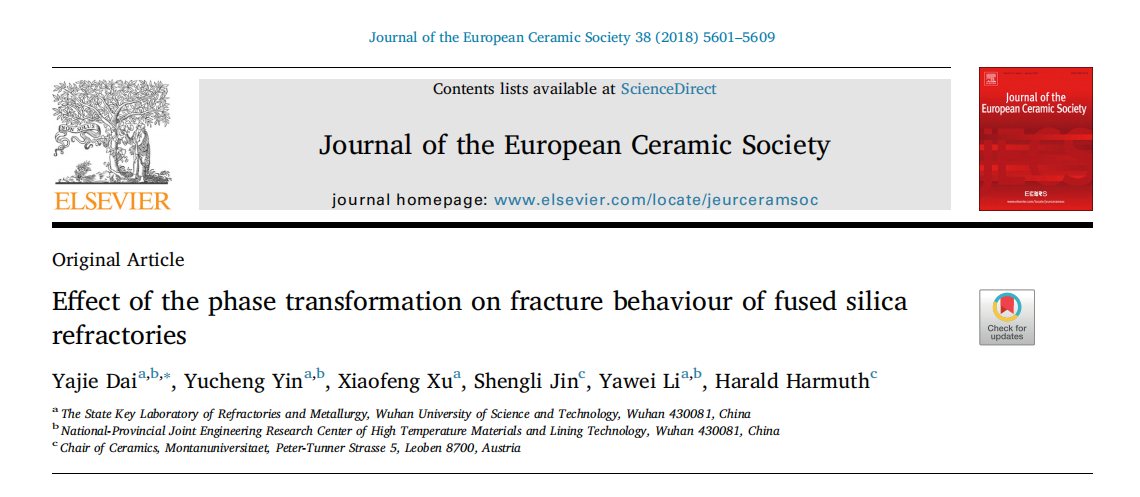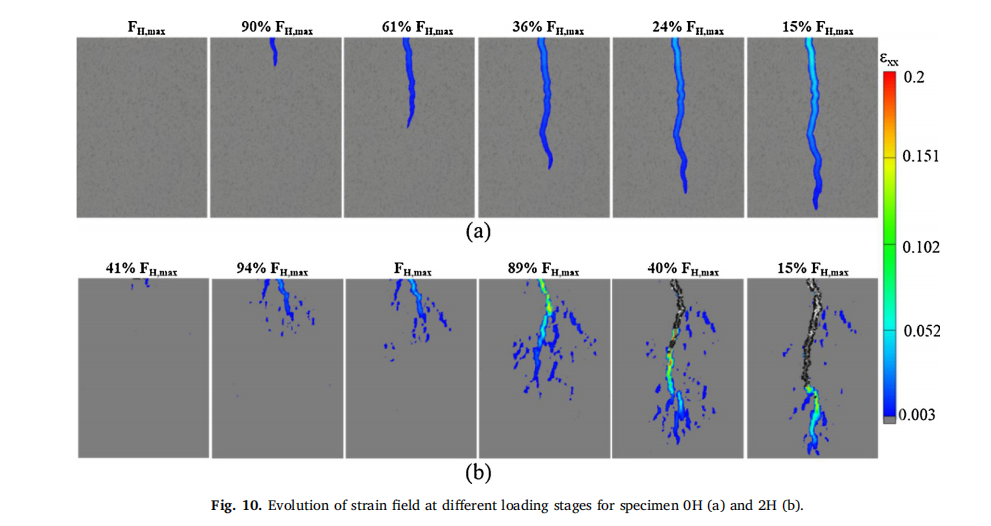The latest research result of the team was published in Journal of the European Ceramic Society (IF=4.029)

In this paper, the influence of phase transformation on the properties and fracture behaviour of fused silica refractory was investigated. The virgin fused silica refractory is amorphous, and possible failure is attributed to the propagation of a single crack in the structure. Due to the crystallization and phase transformation of low-/ high- temperature cristobalite subpolymorphs occurring during the heat treatment, microcracks are formed especially in the matrix and at the grain boundary. This microcracking enables the development of sizable fracture process zone, which is responsible for the increase of specific fracture energy even with the decrease of strength. Therefore, the heat-treated specimens exhibit lower brittleness and higher strain tolerance before failure compared with the virgin fused silica refractory. All of these properties represent a better thermal shock resistance. Furthermore, microcracking causes a characteristic temperature dependence of Young’s Modulus due to phase transformation and partial crack closure at increased temperatures.

Paper link: https://www.sciencedirect.com/science/article/pii/S0955221918305363?via%3Dihub
Paper:  Effect of the phase transformation on fracture behaviour of fused silica refractories.pdf
Effect of the phase transformation on fracture behaviour of fused silica refractories.pdf
